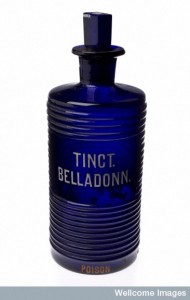One of the best school mottos I have encountered is that which introduces the General Knowledge Quiz of King William’s College on the Isle of Man. The motto is: Scire ubi aliquid invenire possis, ea demum maxima pars eruditionis est. It essentially translates as, ‘ to know where you can find anything is, after all, the greatest part of erudition’
I sometimes feel that this should be a touchstone for healthcare professionals nowadays. Often we encounter situations where we don’t know the answer, and yet, that doesn’t really have such an impact now that we can access focused, accurate and useful information readily – if we know how to use the tools available.
But what is it that makes us recognise our knowledge deficit and press the HELP button?
A paper published in the PMJ has studied what makes emergency physicians consult an emergency poisons advice service. This study found that rates is consultation to the poisons service were significantly lower than in previous studies (only 11.4% of cases were referred), and there were some important differences between those whose cases were discussed with the poison centre, and those whose cases weren’t.
However, female sex, multiple substances, and suicidal intent did result in a higher rate of consultation with the poison service. The day of the week that the case presented to hospital had an influence on referral (more often consulted on Mondays and Tuesdays) and the severity of the incident had a fascinating influence in that if the poisoning severity score was zero (low) or three (severe) then consultation was more likely, but mild and moderate cases prompted consultation less often.
The authors of the paper offer some reasons why they feel the results were returned, but can’t offer explanations for all of the observed associations.
So, for the emergency physicians studied – does a case of poisoning with no symptoms offer few clues as to the required management, or what to suspect – hence the call for help, and is it that odd poisons are ingested on Mondays and Tuesdays, whereas on Fridays and Saturdays it is just the familiar alcohol / heroin which is sadly routine in many EDs in this country too?
The low rate of referrals reported in this paper made me consider my own decision making. What is it that makes me reach for the phone to check on my decision making, and in which situations am I more confident?
Cognitive bias can be defined as a pattern of deviation in judgement, which can lead to illogical decision making. This paper in the NEJM highlights the importance of being aware of cognitive bias, and advises physicians to undertake regular surveillance of one’s intuitive behaviour.
Many biases can come to bear on the diagnostic thinking of physicians within the ED, and other wards:
Triage cueing – the difficulty of leaving the initial judgements of the triage assessment behind, even when new evidence comes to light.
Anchoring – the attribution of greater importance to a key feature that is heard early in the history.
Ascertainment bias – when stereotyping and prior expectations exert undue influence on a supposedly rational process.
There is also the cultural context to be considered. This paper on the culture of medicine offers some additional food for thought about why and when we ask for help…
It may not be that cognitive bias and cultural context can fully explain why physicians don’t consult dedicated poison centres when confronted with cases of poisoning, but this paper does provide an opportunity for us to reflect on our own practice – how often do we stop to question our own intuitive behaviour, and consider when and why we ask for help?
Next time you find yourself holding back from asking for help to solve a bit of a diagnostic conundrum, or feeling that you ‘really should know the answer to this one’ just consider if it is your cognitive biases trying to persuade you down a particular route, or that your intuitive behaviour is taking over your analytical thinking – and if in doubt, really do ask for help… especially if it involves poisons.
